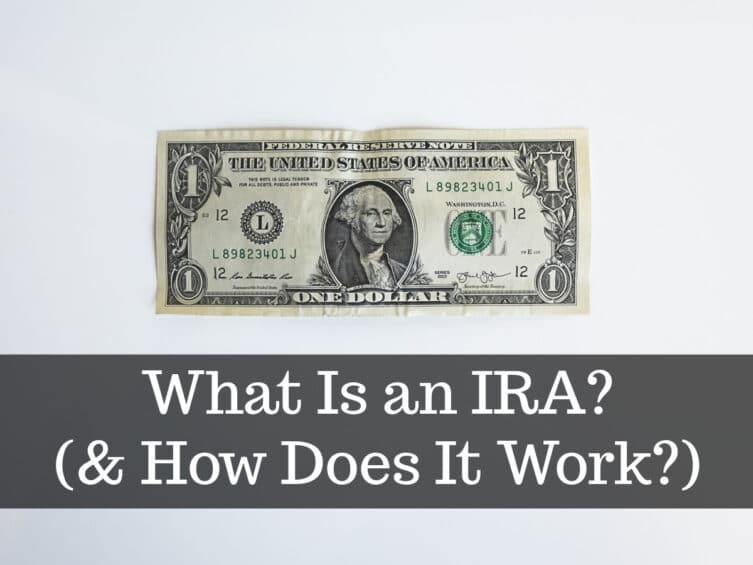If you’re looking to save for your and your family’s future, an Individual Retirement Account (IRA) is an effective way to do so. But what is an IRA account and how does it work? What are the different types of IRA? What is an IRA actually useful for?
Read on to find out everything you need to know.
1. What Is an IRA?
IRAs are nothing more than a section of the tax code established in 1974, 26 U.S. Code § 408. They were set up to allow you to put part of your income into an account that can then be invested and allow you to save in a tax advantaged manner (either tax-free or tax deferred).
Easy, right? Well, stay with me because it can get confusing.
When you withdraw money from an IRA, this is treated as taxable income. The logic here is that you will be paying higher tax rates during your working life than you will during retirement. Therefore, you will be able to save for your retirement by offsetting your tax burden.
2. What Are the Different Types of IRA?
There are several different types of IRA accounts that you can open. Each of these has their own benefits and drawbacks and will depend on your situation. There are several other types of IRAs that are available for employers, but we’ll concentrate strictly on those for individuals.
- Traditional IRA: This is the most recognized IRA. You can put away tax-deductible (or pre-tax) contributions with the expectation that you will be paying lower rates of deferred tax when you withdraw them in retirement. Simple.
- Roth IRA: This is when you make contributions with money you have already paid tax on (post-tax contributions). The logic here is that your withdrawals in retirement will be tax-free, depending on certain conditions being met.
- Rollover IRA: This is when you “roll over” assets from other retirement plans, such as your 401K, into an IRA.
3. What Is an IRA vs 401(k)?
If you’re wondering how an IRA differs from your employer plan, (i.e. a 401(k)) there are a couple of differences to keep in mind.
A 401(k) is a retirement plan that is sponsored by your employer, and not only allows employee contributions to be made, but will also allow contributions to be made by the employer.
In addition, employer plans such as a 401(k) will allow for greater contribution limits than an IRA. For example, current contribution limits for individuals in either a Traditional or Roth IRA are $6,000 per year ($7,000 for age 50+). Limits on contributions for 401(k) are $19,500 ($26,000 for age 50+).
One can (and should) maintain a combination of IRAs and employer plans and maximize as many contributions to both as possible. (Some restrictions may apply depending on income.)
4. What Are the Benefits of an IRA?
An IRA is an excellent savings tool that can allow you the ability to contribute, invest, and lower your taxes during your working years all in one place.
Your IRA can supplement your 401(k) by allowing you not only to maximize your contributions for retirement, but also give you more investment options not usually offered in a 401(k). In addition, if you do not have access to an employer plan, an IRA is perfect.
IRAs may also be more flexible than an employer-provided plan. For example, Roth IRAs may offer you additional liquidity in case of emergency, due to the ability to access post-tax contributions. However, you should never put away money you might need before retirement.
Also, an IRA typically offers a wide range of investment options with a lot less fees than a 401(k).
These are all compelling reasons to bolster your future with an IRA.
Start Saving for Your Future Today
Now that you know the answer to the question “what is an IRA?”, it’s time to begin saving for your future. Fortunately, we are here to help.
To gain access to the financial resources and life hacks you need to enjoy retirement in comfort, don’t hesitate to get in touch with us today for more information.



